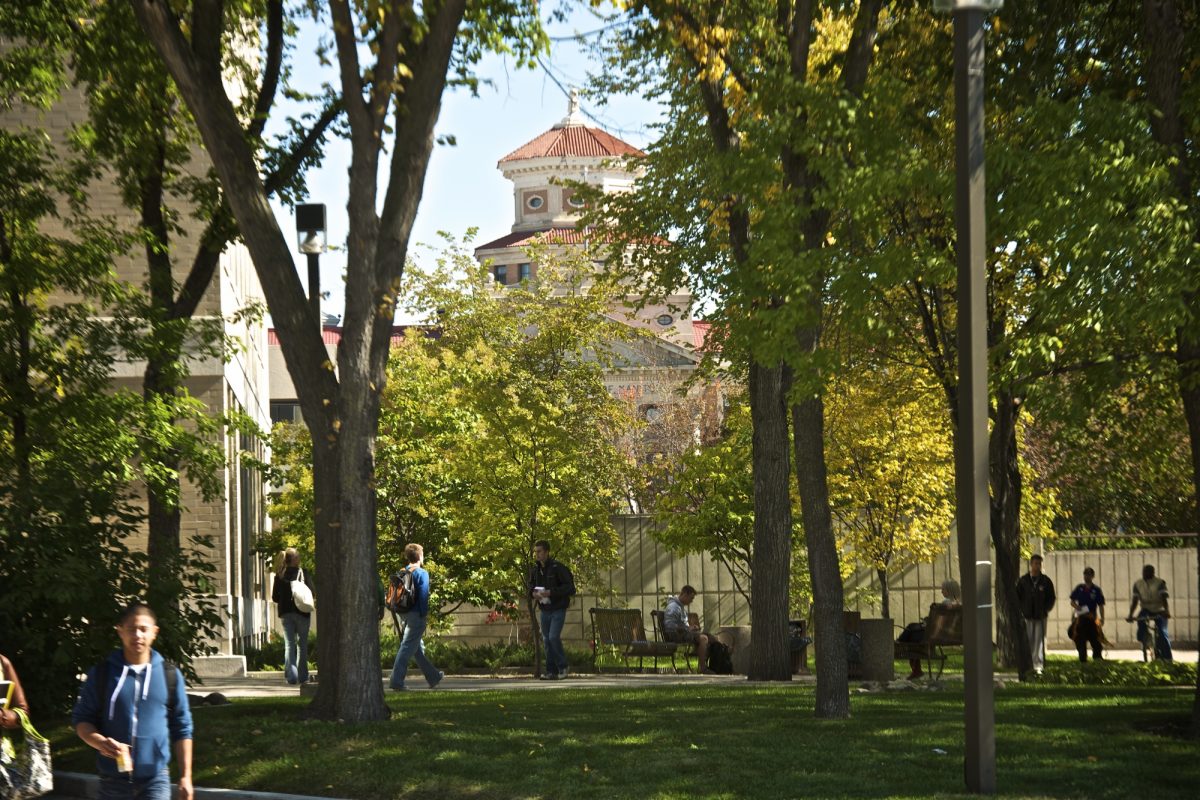
Campus mental health five year report
Five years ago, the U of M adopted a mental health strategy, Success Through Wellness, with the aim of addressing and improving mental health for the entire university community. Along with this, the Champions for Mental Health Group (CMHG) was created to oversee implementation of the strategy.
To celebrate some of the ways in which our university has embraced the initial mental health strategy, a five-year summary report called Success through Wellness: Enhancing the University community to promote and support mental health and well-being has been prepared on behalf of the CMHG to share some of the successes of the past five years, and the cultural change that has happened.
Arlana Vadnais, Campus Mental Health Facilitator, Human Resources and Student Support, and member of CMHG, says, “The strategy’s success is found in the many initiatives, projects, partnerships and relationships that have been created and enhanced during the last five years.
Initiatives like the free Mental Health First Aid course for staff and faculty, the creation of communities of practice, the Success Through Wellness Grants, and the LiveWell website have furthered the goals of the strategy in many ways, including in raising awareness, promoting help-seeking and effective support, and in bringing us together as a community.”
Gene Muller, Director of Athletics and Recreation, Faculty of Kinesiology and Recreation Management, says the importance of mental health support on campus is incredibly important.
“We have all felt overwhelmed and in need of support. It is reassuring to know that there are options for us at these times. The Success Through Wellness strategy is a coordinated and responsible effort to grow the conversation and supports around mental health in our community,” he says. “Our work in Athletics and Recreation at the U of M aims to contribute towards a resilient, caring and healthy community and the Success though Wellness Strategy provides us with a map.”
Mental health and wellness are also of specific interest for students. Sarah Bonner-Proulx, Vice President Advocacy for the University of Manitoba Students’ Union, former member of Active Minds, and member of CMHG, speaks to the need for supports for students: “Post-secondary students are at a stage in their life which is often paired with significant transitions, new responsibilities, and an increasing pressure to succeed, both academically and socially – making them particularly vulnerable to mental health issues. Additionally, the age at which most people attend post-secondary coincides with a common age of onset for mental illness. Without the proper, accessible supports in place, not only are students’ academic performance at risk, but also the individual’s safety and wellbeing.”
She adds, “In my time here, I have seen simple, yet high impact measures put in place that have shown the University’s commitment to supporting students health and well-being. However, moving forward we must ensure that we are taking an intersectional approach when addressing mental health and be deliberate in our intentions to include the voices from all members of the community, especially those who are most likely to feel the negative effects of a flawed system.”
Moving forward is exactly what’s on the minds of the members of the CMHG. Vadnais says, “Mental health and overall wellness is integral to academic and job success, and alongside all of this progress, we recognize that there remains much work to do. In the next five years (and beyond), we will seek to further decrease the stigma of mental health, to enhance supports for our staff, students and faculty who are struggling, to foster resilience, strengthen our community ties and enhance the overall wellness climate of our campus.”
As we mark the five-year anniversary of the implementation of the initial strategy, this report also serves as a foundation upon which to explore new priorities for Success Through Wellness 2.0 – a revised mental health strategy to guide our work for the next five years. We look forward to continuing consultation and collaboration on ideas and initiatives to further enhance mental health and wellness at the University and welcome your feedback as part of this process.
For more information, visit the website.






